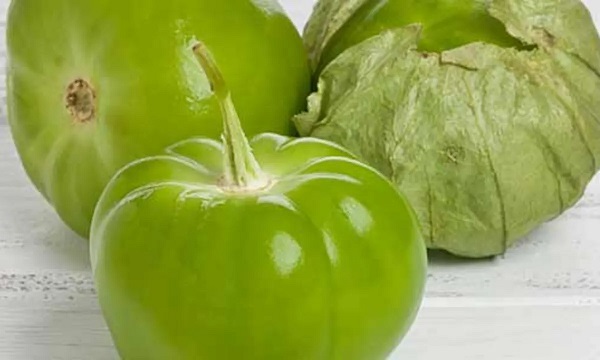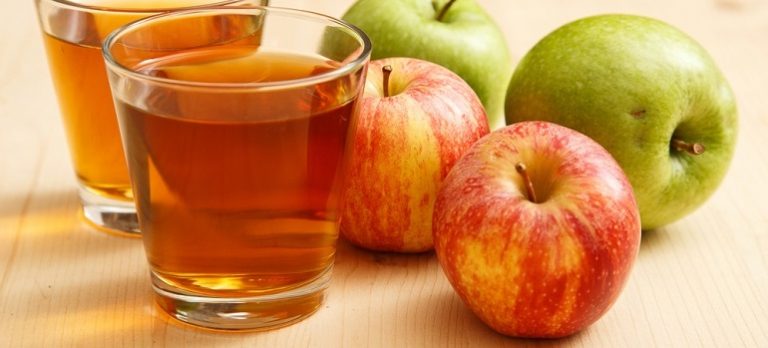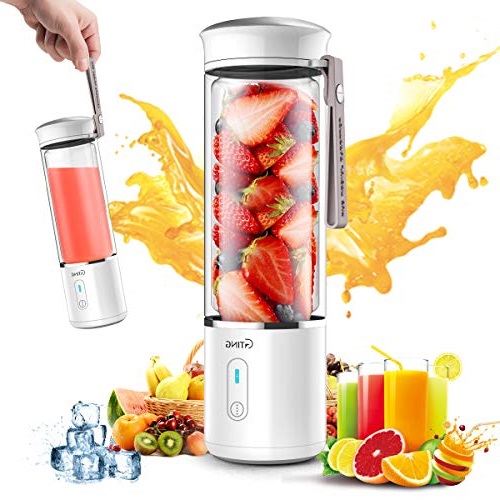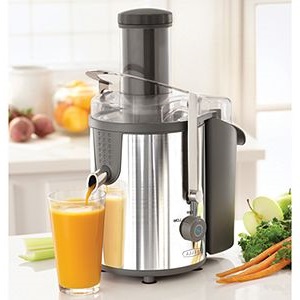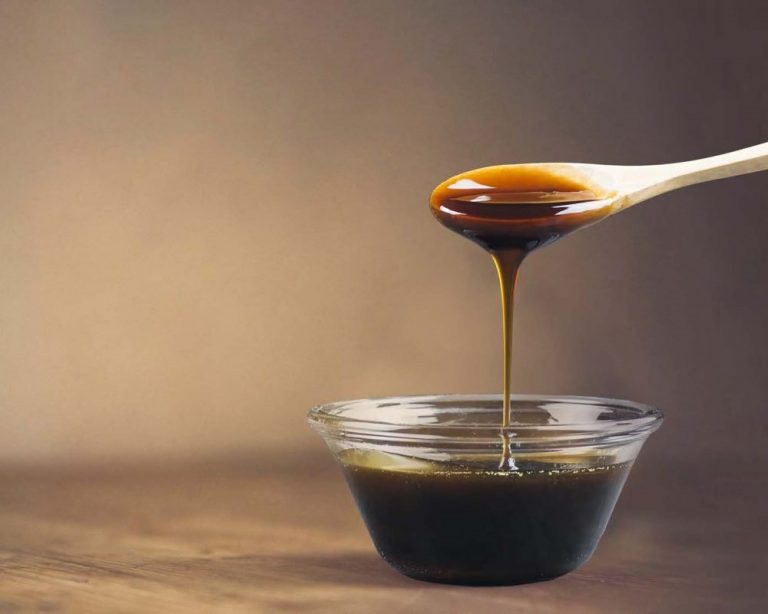Ghee Substitute: How To Stop Using Ghee
Trying to find a substitute for ghee? Stick around as we share some substitutes for your missing ingredient.
Ghee is a well-known ingredient in Indian cuisine. In this article, we will introduce to you some substitutes for ghee that you can use in your cooking.
The process of making ghee removes all the milk solids and water, leaving behind a nutty, aromatic butter. Ghee has a high smoke point and can be used in frying, sautéing, and baking.
Ghee is a great source of vitamins and minerals. There are many substitutes for ghee that have a high vitamin and mineral content. Ghee is a great option for those who are looking for high-quality fat, but it can be expensive and some people may not be able to tolerate the lactose. On top of that, Ghee does not contain any plant-based omega-3 fatty acids, which are important for overall health.
You might be wondering if there is a good Ghee substitute. Well, you’re in luck! There are many substitutes for Ghee that are easy to find. Some of these substitutes may be a little tricky to track down, but you may have them in your kitchen already!
Dairy-Free Ghee Substitutes
1. Sesame Oil
Sesame oil is a type of vegetable oil that is extracted from sesame seeds. It has a nutty flavor and is often used as a substitute for ghee in Indian cooking. It has a dark color and is thicker than ghee, so it works well in dishes that require a higher smoke point.
The name “sesame” comes from the word “sesamum,” which is Latin for “oil.” Sesame oil is a light, nutty-tasting oil that’s popular in Asian cuisine. Its smoke point is high, so it can be heated to a high temperature without smoking or burning.
Sesame oil is an ingredient that has a strong flavor profile. It is used as a substitute for ghee in some cases because it has a similar texture and flavor.
Toasted sesame oil will make the best replacement for ghee because the toasting process makes the flavors in seeds more intense. This will add a delicious flavor and aroma to your food.
2. Rapeseed Oil
Rapeseed oil is recommended for cooking most dishes because It has a mild nutty aftertaste and a high smoke point and doesn’t produce harmful toxins when heated to high temperatures, so you can cook your ingredients at a high temperature without the oil breaking down and releasing harmful compounds into the food. Just be sure to use a moderate amount so that the food doesn’t taste too oily.
It also contains unsaturated fats and vitamin E, it can be used in making dishes, especially the savory ones.
3. Olive Oil
Olive oil can be a great substitute for Ghee in many recipes. It has a similar flavor and texture and is a healthier option for those looking to avoid dairy.
Extra-virgin olive oil has a fruity, peppery flavor and a slightly bitter aftertaste. It is also high in antioxidants, which makes it a healthy choice for cooking. Additionally, it has a lower smoke point than other oils, so it’s best to use it for low-heat dishes like salads or dips.
It’s not the cheapest option. It has a high smoke point, so it’s perfect for cooking at high temperatures.
Ghee is unhealthy for the body, while olive oil has many benefits. Olive oil is a monounsaturated fat that can help reduce bad cholesterol and protect the heart. Additionally, It is a good source of Vitamin E, which is great for skin health.
In addition to being a great cooking oil, olive oil can also be used as a substitute for ghee in some recipes. Cookies and brownies are two popular dishes that can be made with olive oil in place of ghee. However, it can be dense and not as effective for making fluffy cakes.
In general, you can use a 3:4 ratio of olive oil to replace ghee in most cases. However, it is best to test the recipe first before making any changes.
4. Mustard Oil
Mustard oil has a smoke point of 249°C, meaning that it can be heated to this temperature before becoming carcinogenic. It is therefore not recommended for use in high-temperature cooking methods.
Mustard oil is a great alternative to ghee because it has a low volume of erucic acid. This means that it’s not harmful to your health like other oils with high levels of erucic acid.
Mustard oil has long been demonized for allegedly causing coma, cancer, and diarrhea. However, recent studies have debunked these myths and shown that mustard oil is a healthy cooking oil with numerous benefits.
Heart health is a critical issue for many people, and mustard oil is a great way to keep your heart functioning well. It has monounsaturated fats that can help reduce bad cholesterol and increase good cholesterol, as well as other nutrients that are beneficial to heart health.
It helps control cholesterol levels in the body. It has been said that mustard oil is the best thing for both hair and skin. It nourishes and moisturizes the hair and scalp, while also doing so to the skin. Mustard oil is a great choice for dry skin as it provides nourishment and antioxidants. Additionally, it does not contain any harmful chemicals, so you can use it with peace of mind!
5. Rice Bran Oil
When replacing ghee with rice bran oil, a 3-to-4 ratio is recommended, and for every 1 part of ghee, 1 part of rice bran oil can be substituted. Rice bran oil has a high smoke point and a neutral flavor, making it an ideal substitute for those who wish to avoid dairy or are lactose intolerant.
The health benefits of rice bran oil are major. It can help regulate blood sugar levels, boost weight loss, improve skin and gut health, and lower cholesterol levels. There are many substitutes for ghee that offer similar health benefits. Rice bran oil is a great option for those looking to lose weight or improve their cholesterol levels.
6. Peanut Oil
Ghee is a type of clarified butter that has a nutty flavor similar to peanut oil. It is often used in Indian cuisine and has many health benefits. Although it is a good substitute, it is important to check if the person you are cooking for has any allergies before using peanut oil. Some people may have an allergy to peanuts and could have a serious reaction if they eat something with peanut oil in it.
Smoke point is the temperature at which a cooking fat or oil starts to produce smoke. At this temperature, the fat or oil will start to emit a bad smell and taste. Peanut oil has a high smoke point, meaning it can be used for deep frying or searing without producing an unpleasant taste or smell. This makes it the perfect oil for frying French fries, potato chips, and other foods.
Peanut oil is a popular choice for salad dressings as well, it has a mild flavor that goes well with many different types of salads. It is also a healthy cooking oil as it is high in monounsaturated fats and low in saturated fats.
7. Corn Oil
Corn oil is a type of vegetable oil that is extracted from the germs of corn. It is used in a variety of culinary applications and has a high smoke point, making it ideal for frying.

Corn oil is a vegan substitute for ghee because it contains both Omega 3 and 6 fatty acids. These fatty acids help relieve arthritis, headaches, and cataracts. Additionally, corn oil has a high smoke point, meaning that it doesn’t break down or release harmful toxins when heated as other oils do.
Corn oil is a healthy cooking oil that has many benefits. It helps you look younger by improving skin health and preventing wrinkles. Additionally, corn oil is high in antioxidants which protect your body from harmful toxins. It has Vitamin E and antioxidants. These nutrients help keep your skin healthy and protect it from free radicals.
It only takes one spoon to get the job done. Plus, corn oil doesn’t have any of the unhealthy qualities that ghee does so you can cook without worrying about your health. It is polyunsaturated fat, which means it has more than one double bond in its fatty acid chain. Although polyunsaturated fats are beneficial for health, they can also increase the risk of heart disease when consumed in high quantities.
8. Walnut Oil
Walnut oil is a type of edible vegetable oil that is made from walnuts. It has a light green color and a nutty, slightly bitter taste. It is most commonly used in salads, Italian cuisines like pasta and desserts, and as a condiment. It has a shelf life of 8 months when stored in the fridge.
Walnut oil is a great substitute for ghee as it has a smoke point of 160°C. This means that you can cook with it at a high temperature without worrying about it turning into carcinogens.
Walnut oil is a great vegan substitute for ghee. It has a similar texture and flavor, so it can be used in recipes that call for ghee. Walnut oil is a healthy substitute for ghee because it contains unsaturated fatty acids, polyphenols, and Omega 3. These nutrients are beneficial to your health and help protect you against diseases. It can lower blood pressure and heart risk. Additionally, walnut oil is also beneficial in weight loss and improving brain function.
Walnut oil is a great natural moisturizer that also helps stimulate skin growth, fights skin disorders, and promotes wound healing. Additionally, it has a high smoke point which makes it ideal for cooking at high temperatures.
9. Flaxseed Oil
Flaxseed oil is a type of vegetable oil that is extracted from the flax plant. It has a host of health benefits and is best used as a dietary supplement. Flaxseed oil has a high smoke point and is a healthy cooking option. It must be stored in an airtight container to prevent it from being stinky.
Flaxseed oil is a great alternative to ghee, but it’s important to note that it should not be heated. You can consume flaxseed oil by adding it to smoothies or other cold dishes.
Flaxseed oil is a healthy alternative to ghee. It contains Omega 3 fatty acids, which are good for your heart.
A recent study published in the journal “Cancer Prevention Research” suggests that flaxseed oil may help to prevent the spread of lung tumors. Researchers found that mice who were given flaxseed oil in addition to radiation therapy had smaller and slower-growing tumors than those who did not receive the oil. While more research is needed, this preliminary finding could have important implications for cancer treatment.
It has high levels of omega-3 fatty acids, which are beneficial for the body in many ways. It helps improve heart health, prevents aging effects, and reduces inflammation.
10. Brazil Nut Oil
Brazil nut oil is a vegetable oil pressed from the seeds of the brazil nut tree. It is a dark yellow to reddish oil with a strong, characteristic flavor and odor. The oil is used in cooking, as well as in the cosmetic and pharmaceutical industries. The Brazil nut is a large, hard-shelled seed that can weigh up to 2 kgs and are prized for its high oil content.
This oil is yellow and has a pleasant smell. It is a great substitute for ghee, as it has a high smoke point and a neutral flavor. It is a great substitute for ghee because it contains fatty acids, phytosterol zinc copper vitamin D, C E, and A. These nutrients are essential for the body and help with various bodily functions.
11. CottonSeed Oil
Cottonseed oil is a cooking oil that is derived from the cotton plant. It is used in various cuisines and has a mild flavor.
Cottonseed oil is a light golden color, has a mild texture, and has a nutty taste. It is perfect for stir-frying, baking, and salad dressings. Cottonseed oil is a type of vegetable oil that is derived from the cotton plant. It has a smoke point of 216°C, which makes it a good choice for deep frying and other high-heat cooking methods. Additionally, cottonseed oil is often used to enhance flavors in snacks and other food items.
Cottonseed oil is a great alternative to ghee as it contains natural phenol which has been known to act as a male contraceptive. Additionally, polyunsaturated fat lowers LDL and increases HDL levels. However, it should be noted that the high amount of saturated fat reverts its positive effect on heart risk.
12. Palm Oil
Palm oil is a popular option for those looking to replace ghee in their diets. It is a healthy and accessible substitute that has many of the same benefits as ghee.
Palm oil is reddish because of the high levels of carotenoids it contains. Carotenoids are beneficial for the health of the eye and have anti-inflammatory properties. Palm oil is a kind of vegetable oil extracted from the fruit of the palm tree. It contains fatty acids and saturated fats, which are beneficial for human health. LDL cholesterol levels increase when it is consumed, which can lead to heart disease. For this reason, it is important to find a substitute for palm oil to maintain a healthy lifestyle.
Ghee Substitutes used in Cooking
13. Sunflower Oil
Sunflower oil is a type of vegetable oil that is extracted from sunflower seeds. Sunflower seeds are harvested for their food value, as they contain a high amount of protein and essential fatty acids. The oil is used in cooking, as well as in the production of cosmetics and other personal care products.
Sunflower oil is a great substitute for ghee when deep frying because it has a high smoking point. This means that the oil will not start to smoke until it reaches a very high temperature, which will prevent your food from becoming soggy or greasy. It has a smoking point of 450 degrees Fahrenheit, making it a good choice for searing, stir-frying, and other high-heat cooking methods.
It has a nutty flavor and can be used in the same way. It is also a healthy option as it is high in Vitamin E and low in saturated fats. It can be used for pan-frying, stir-frying, and salad dressings without smoking or burning.
14. Coconut Oil
Coconut oil is a great source of healthy fats, but it can be a little on the expensive side. This means that not all recipes will call for it, but when it does, it provides great flavor and nutrition.
Coconut oil has a flavor that is close to ghee, making it a suitable substitute for dishes that require the flavor of ghee. Additionally, coconut oil is known for its health benefits and can be used in place of other oils in recipes.
When it comes to replacing ghee with coconut oil, there are pros and cons. On the plus side, coconut oil is a healthier option than ghee as it contains lauric acid, which has antimicrobial properties. However, coconut oil is also a more expensive option than ghee and it doesn’t have the same flavor or texture.
Coconut oil is a great natural product with many medicinal properties. It can be used as a dry skin moisturizer or hair conditioner.
It has a fuller flavor and a highly aromatic scent of ghee. Additionally, it is solid at room temperature and has a long shelf life.
You don’t need to add vanilla extract or cinnamon because coconut oil does it by itself. Coconut oil is a great replacement for ghee in recipes and gives the food a delicious flavor.
Read more: top dark soy sauce alternatives
15. Clarified Butter
Clarified butter is a type of butter that has had the milk solids and water removed, leaving behind pure butterfat. It is usually made by simmering butter until the water evaporates and the milk solids sink to the bottom, where they are then scooped out. Clarified butter has a high-fat content and is not plant-based, so it should be avoided if you are following a plant-based diet.
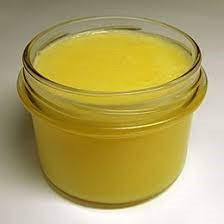
Clarified butter is great for deep frying because it has a high smoke point, meaning that it doesn’t start to break down and produce harmful compounds until it reaches a very high temperature. This makes it the perfect fat for achieving a crispy texture in your food.
Ghee Substitutes Used In Baking
16. Butter
Butter is a dairy product that is made by churning cream or milk to separate the butterfat from the buttermilk. It has a similar consistency to Ghee, but it contains lactose and is not as shelf-stable.
Butter is a great way to add flavor to dishes, but if you’re looking for something with a bit more of a nutty flavor. The flavor of olive oil can help accentuate the nuttiness of the dish, and it’s a healthier option than other oils. Although it is often used interchangeably, butter and ghee are not the same. Ghee is made from butter, but it has a higher smoke point so it can be used in cooking at a higher temperature. Additionally, ghee has a nutty flavor that some people prefer.
There are a ton of choices when it comes to picking the best butter for ghee. You can go with grass-fed, unsalted, cultured, or Kerrygold. It all depends on your preference and what you’re looking for in your ghee.
You can get blocks of butter for a cheap price that lasts you a long time.
If you’re looking for a 1:1 substitution for Ghee in a recipe, then feel free to use butter instead. There’s no need to do any complex math, just go ahead and use the same amount of butter as the recipe calls for Ghee.
17. Vegetable Oil
Vegetable oil is a popular substitute for Ghee, especially in countries where dairy consumption is not as common. It has a similar texture and flavor, making it an ideal replacement for those who are looking to avoid dairy or follow a vegan or vegetarian diet.
Vegetable oil is a type of cooking oil that is extracted from vegetables. It is flavorless, so it can be used in any dish. Additionally, vegetable oil is high in monounsaturated fats, which are healthy for the heart.
It can be expensive and time-consuming to make. Luckily, there are plenty of substitutes that will do the trick. Vegetable oil is a good option for sautéing or frying, and it also adds moisture to the food. Olive oil is another healthy option that works well in both sweet and savory dishes. Coconut oil has a distinctive flavor that can be used in sweet or savory recipes, and it’s also a good choice for high-heat cooking.
18. Soybean Oil
Soybean oil is a type of vegetable oil that is extracted from soybeans. It is often used in baking because it has a mild flavor and adds moisture and texture to desserts and pastries.

It is a vegetable oil that is high in polyunsaturated fats, specifically omega-6 fatty acids. While these fatty acids are healthy and essential to human health, they should be consumed in moderation because they can promote inflammation when consumed in excess.
Soybean oil is not a good cooking oil because it easily burns. When heated, soybean oil produces harmful compounds that can increase your risk of cancer and other diseases.
Other Substitutes for Ghee
19. Canola Oil
Canola oil is a type of vegetable oil that is extracted from rapeseed. It is a good alternative to Ghee because it has a high smoke point and does not have a strong flavor.
It has a smoking point close to that of ghee. This means that it is a good choice for cooking at high temperatures. Canola oil is also a healthy option for cooking, as it is low in saturated fat and contains omega-3 fatty acids.
Canola oil is a good substitute for ghee because it has a neutral flavor and is versatile to use. It can be used in baking, cooking, and frying. Canola oil has a light flavor and is good for high-heat cooking. It is also a healthier option than other oils.
I recommend canola oil for baking because it has lower fat content than other oils. This means that your baked goods will not be as greasy and will have a more consistent texture.
20. Brown butter
Brown Butter is made by cooking butter over low heat until it becomes nutty and brown. It contains traces of lactose and casein, which some people are sensitive to. Ghee is made in the same way as brown butter, but the milk solids are removed so it is free from these allergens.
21. Margarine
Margarine is a vegan-friendly butter substitute that can be used in place of ghee. It has a similar texture and taste, but it is made with vegetable oils instead of animal fats.
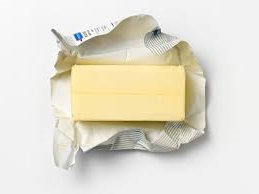
Margarine is a soft, dense, and nutty spread that can be used as a butter substitute. It is made of vegetable oils, water, milk proteins, emulsifiers, and salt.
On the other hand, margarine is a hydrogenated product which means that it is not good for your health. Hydrogenation increases the shelf life of oils and spreads but it also creates trans fats, which are known to cause heart disease.
22. Avocado Oil
Avocado oil is a healthy cooking oil that has a high smoke point, meaning it doesn’t break down and produce harmful compounds when heated to high temperatures. It’s excellent for sautéing and deep-frying in Indian recipes.
It has a high smoke point and a buttery flavor that can work in many recipes.
Unlike saturated fats, monounsaturated fats are considered healthy for the body as they help reduce bad cholesterol and maintain heart health.
Avocado oil is a great source of monounsaturated fat and has a mild flavor that makes it a good substitute for ghee in many recipes. Avocado oil is a great option when you’re looking for a healthy fat to cook with. It has a mild flavor and a smoke point of 8g, meaning it’s safe to use for sautéing and frying. The 3:4 ratio will help to avoid excess moisture and maintain the flavor of the food.
23. Lard
Lard is a type of animal fat that is rendered from pork. It can be used as a substitute for ghee in many recipes. Lard is a great substitute for ghee in most cases, as it has a very similar texture and color. However, lard does have a slightly different taste that some people may not enjoy as much as ghee.
Lard is a healthier and more suitable substitute for vegetable shortening in baking.
It has a higher smoke point than butter and margarine, so it’s less likely to burn when used in cooking. Lard is also lower in saturated fat than butter and margarine. You can replace lard with ghee in a 1:1 ratio without any noticeable difference in the recipe.
Health Benefits of Ghee
Ghee has many health benefits such as an increased level of Vitamin A, reduced gut inflammation, and heart health. Additionally, ghee can be used as a replacement for other oils or fats in recipes.
The milk solids are boiled until they turn into a thick, yellow liquid with a distinctive flavor. Ghee helps improve your skin health, it is a natural product that produces no chemical reactions, and it has a high smoke point so you can cook with it at high temperatures without worrying about the unhealthy effects of cooking oils.
Although it is high in saturated fat, ghee has many health benefits. It is good for people with gastrointestinal problems, obesity, and weight loss. Ghee also contains beneficial fatty acids such as conjugated linoleic acid (CLA) and linoleic acid. When heated, however, ghee produces acrylamide which may be harmful to our health. Despite this potential danger, the anti-inflammatory support effect and anti-obesity properties of ghee make it a healthier choice than other oils.
Why Should I Substitute Ghee?
Ghee is a type of clarified butter that is commonly used in Indian cooking. However, it can be expensive and sometimes difficult to find. There are several substitutes you can use in its place, including olive oil, coconut oil, and butter. Each has its unique flavor and properties that can enhance your cooking.
Some reasons why it should be substituted: lactose intolerance, taste aversion, or aversion to smell might make you seek out a Ghee substitute. Additionally, Ghee can be expensive depending on where you live.
On the other hand, some stores don’t even carry ghee. So, if someone is looking to substitute it in their cooking, they might have a hard time finding it. This can be frustrating because ghee is a great cooking oil that has many health benefits.
Ghee is high in saturated fats, it also has a high smoke point which makes it ideal for cooking at high temperatures. However, there are healthier alternatives to ghee that can be substituted in recipes. Coconut oil, olive oil, and vegetable shortening are all healthier options that can be used in place of ghee.
FAQ’s
What Exactly Is Ghee?
Ghee is clarified butter, which is made by heating butter until the milk solidifies and water has evaporated. The remaining butterfat is then strained through a fine mesh to remove any impurities. Ghee smokes faster than other fats, which means it can be heated to a higher temperature before it begins to smoke and release harmful compounds.
It is a type of clarified butter that originated in India. It is popular throughout the country and can be used for a variety of cooking purposes. Ghee is great for sauteing food items and adding flavor to meats, as well as finishing oils.
What Is Better Ghee or Oil?
Ghee is free of polyunsaturated fats, which makes it a healthier choice than oil. It is made by simmering butter until the water evaporates and the milk solids sink to the bottom, leaving a golden-colored oil behind. Ghee is also full of antioxidants and vitamins like A, D, E, and k.
Ghee has a higher smoke point than oil, making it the better option for cooking and frying at high temperatures. The butterfat in Ghee also makes it more resistant to oxidation, meaning that it will not spoil as quickly as other oils.
How To Choose a Ghee Substitute?
When looking for a ghee substitute, I would ask myself a few questions to help me narrow down my choices. What are the ingredients in the recipe? What is the flavor profile I am going for? And what type of cooking am I doing? After answering these questions, I can then start to look at specific substitutes that will work best for my needs.
Oils that are neutral-tasting, such as canola and olive oils, will not alter the flavor of whatever you are cooking. The substitute must be solid at room temperature. This leaves butter or coconut oil as your best options.
Can I Make Ghee at Home?
Yes, you can make ghee at home by following these simple steps:
Put a piece of unsalted butter and melt it in a saucepan over low heat. Once the butter has melted, continue to cook it until the milk solids start to brown and rise to the surface. Remove from heat and strain out the browned milk solids using a fine-mesh strainer or cheesecloth. Ghee will keep in an airtight container in your fridge for up to 2 months or in your freezer for up to 6 months.
How Long Does Ghee Last?
As for how long ghee lasts, if it is made at home and stored in the fridge, it can last up to 12 months. If you store homemade ghee in an airtight container at room temperature, it will last about 3 months.
How To Keep Ghee Longer?
There are a few effective methods to keep ghee for extended periods. One is to store it in an airtight container in the fridge or freezer. Another is to make sure the ghee is completely cooled before storing it.
One way is to store it in the cabinet, where it will be less exposed to light and heat. Another way is to freeze it, which will make it last up to six months.
To keep ghee for a longer period, it is important to take note of the date it was made. This will help with tracking how long the ghee has been stored. Additionally, keeping the jar in a dark and cool place will also help preserve the ghee.
You can store Ghee for a longer period in the fridge. The ideal temperature range is between 35-40 degrees Fahrenheit. Make sure to keep it in an airtight container so that it does not absorb any other flavors from the fridge.
To keep ghee for a longer period, it is recommended that you freeze it. The steps are simple: Freeze the ghee in a freezer bag or container at 0 degrees F. Put the freezer bag or container in the freezer. Ghee will be preserved for the long term.
How To Tell If Ghee Has Gone Bad?
Ghee has a characteristic milky sweetness and a nutty flavor. If it smells stinky or sour, it has gone bad. If you’re not sure whether ghee has gone bad or not, there are a few signs to look out for. If it tastes sour, smells spoiled, or has white spots on the surface, then it’s likely that the ghee has gone bad. However, if it doesn’t have any of these symptoms then it’s probably safe to eat.
If you see any white spots on the surface of the ghee, it means that mold has attacked it. In that case, it’s best to discard the entire container of ghee.
If the ghee has a different taste or smell than usual, it might have gone bad. Finally, if the ghee is solidified or lumpy, it’s definitely past its expiration date.
Can You Use Ghee In Baking Cookies?
Ghee is often used in baking cookies because it doesn’t overpower the other flavors like regular butter can.
In terms of substituting Ghee for butter in baking, there are a few things to consider. For example, when it comes to cake tins, Ghee is a suitable substitute. However, cookies will not turn out as well if you use Ghee in place of butter; they will be harder and more crumbly.
Can You Buy Ghee in Sainsbury’s?
You can buy Ghee in Sainsbury’s both in-store and online. When shopping in-store, you can find Ghee near the dairy products, while online ordering offers a wider range of Ghee products to choose from.
Conclusion
Ghee is a type of clarified butter that is commonly used in Indian cooking. However, it can be expensive and difficult to find. If you are looking for a substitute for ghee, there are many options available.
Let’s explore some of the delicious and healthy substitutes for ghee that you can start using right away! These substitutes will not only show your taste buds what they’ve been missing out on, but they’ll also provide you with a wealth of nutritional benefits.


